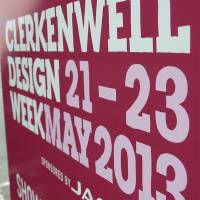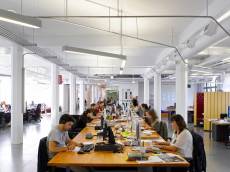July 13, 2013
UK government falling behind in plans to modernise its workplaces
 The UK government has conceded that it is falling significantly behind in its plans to create a modern workplace involving a more flexible working environment for public sector employees. The plans were outlined in the Civil Service Reform Plan a year ago with the aim to create a “decent working environment for all staff, with modern workplaces enabling flexible working”. However, a report released this week by Cabinet Office Minister Francis Maude confirms that the plans are now rated red, meaning they are significantly delayed or off track and that there is now a great deal of work that needs to be done to meet the stated aims of the plan. While some departments have made good progress, there is little cross-government work to meet the demands of the Government’s commitment.
The UK government has conceded that it is falling significantly behind in its plans to create a modern workplace involving a more flexible working environment for public sector employees. The plans were outlined in the Civil Service Reform Plan a year ago with the aim to create a “decent working environment for all staff, with modern workplaces enabling flexible working”. However, a report released this week by Cabinet Office Minister Francis Maude confirms that the plans are now rated red, meaning they are significantly delayed or off track and that there is now a great deal of work that needs to be done to meet the stated aims of the plan. While some departments have made good progress, there is little cross-government work to meet the demands of the Government’s commitment.




















July 17, 2013
What Graeme Obree, the Flying Scotsman, can teach us about workplace innovation
by Andrew Brown • Comment, Technology
Innovation is one of the over-used words in the UK built environment. In fact, it is used so much that its true meaning is being left behind by marketing teams and spin doctors. The real definition is about a new method, idea, product, i.e. some form of technological innovation. Think about the last time you read of a claim for an innovative product, method or management concept. How new was it really? Often ‘innovation’ is more to do with the Emperor’s clothes than an effective new method or a radical product that changes a manufacturing process or reduces carbon, or just makes life and work more efficient. (more…)